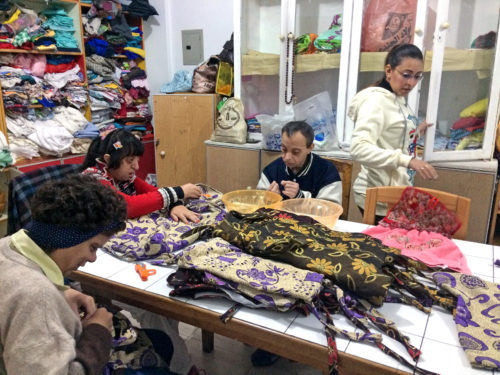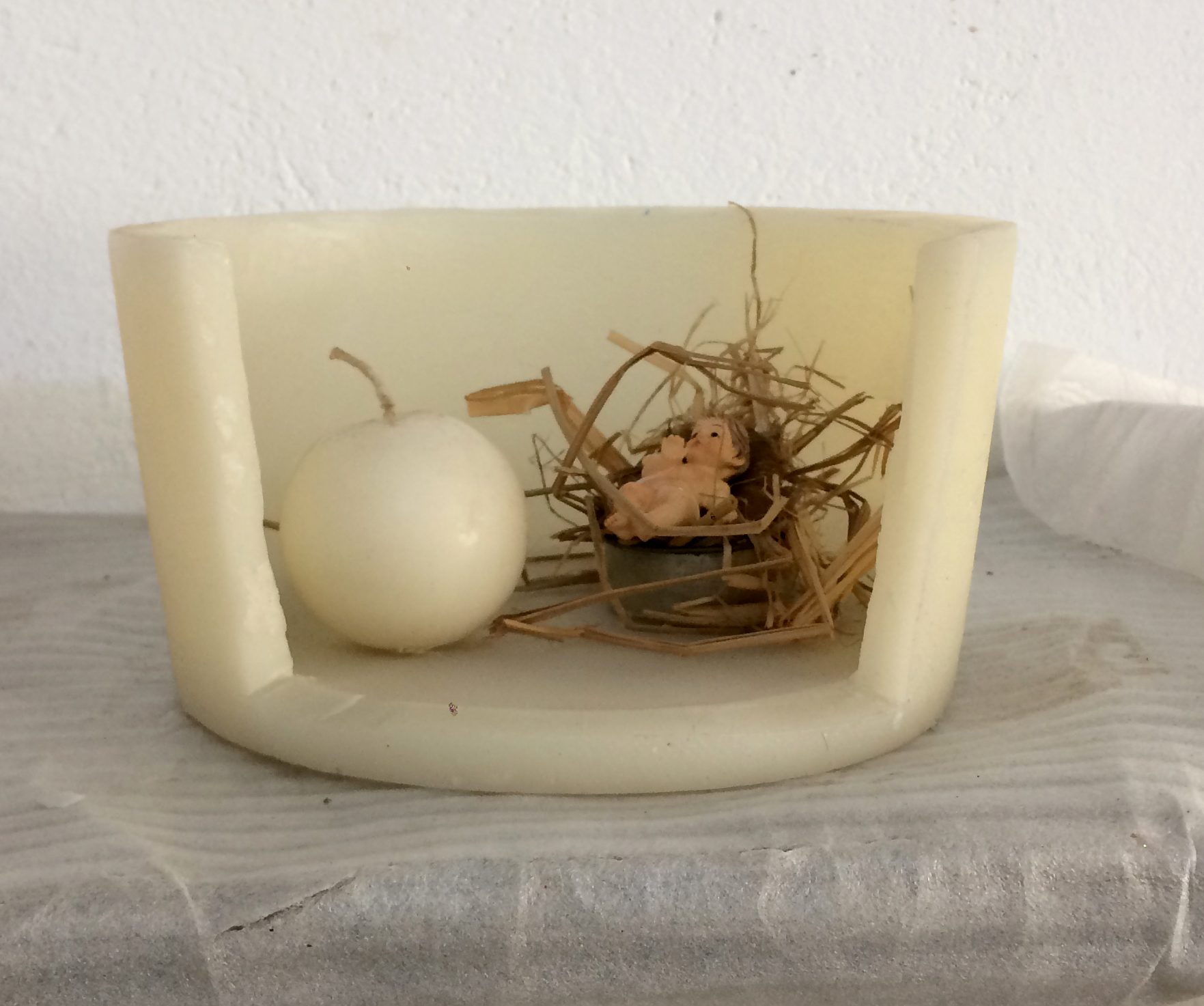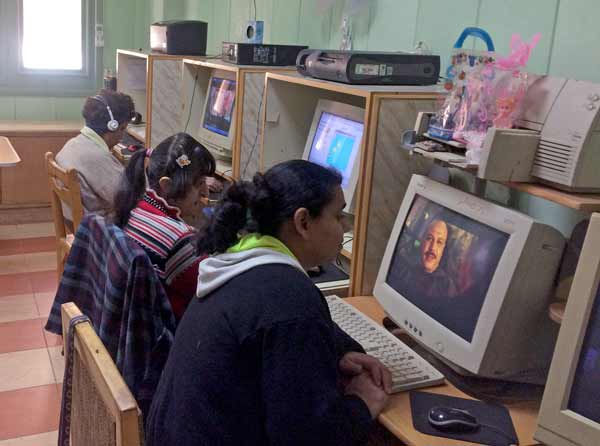By Engy Magdy, Special to The Tablet

CAIRO – In a small workshop, young people with special needs have been busy as elves preparing for Christmas by handcrafting candles and napkins that will decorate the tables of their neighbors in Egypt.
The workshop is part of Our Lady of Peace House for disabled children, run by the Coptic Catholic Patriarchate in Heliopolis, North Cairo. The house serves around 30 children and young adults with special needs.
Maged, 32, has learned all stages of wax manufacturing and decorating. He is also intellectually disabled.
He is one of the adults who joined Our Lady of Peace House when it was founded 14 years ago. He receives health care and was given training to become a professional in the wax industry. He works with five others with disabilities under the direction of a supervisor.
“We have four workshops for sewing, hand-made carpets, waxes and crafts. Everyone learns and participates according to their skills and abilities,” said Sonia Salib, general manager.
 “The workshop has a production line, where people of all disabilities, all levels of intelligence and abilities are placed and tasks are delivered according to each individual’s abilities.”
“The workshop has a production line, where people of all disabilities, all levels of intelligence and abilities are placed and tasks are delivered according to each individual’s abilities.”
The workshops’ products are sold through four exhibitions held during the year, which represent the main source of income for the house.
“We set up an annual Christmas expo and three other [expos] – on Mother’s Day, during the winter season and during the summer,” Salib said. “At the beginning, we used to participate in other exhibitions in schools or churches, but with the development and diversification of our products, we have been holding our own exhibitions inside the house and hosting exhibitors from abroad.”
Three Floors Dedicated to Care
Our Lady of Peace House consists of three floors with 18 rooms dedicated to caring for 40 orphans who do not have special needs, but remain under the care of the house until they graduate from the university.
There are also two apartments, each with four rooms, for people with special needs ages 10 to 45. The center serves children with a range of learning disabilities, including autism, intellectual challenges, psychosis and schizophrenia. They receive health care and education to develop to their fullest potential.
Eight supervisors serve the people with disabilities, while two nuns take care of the general population of children under the supervision of Father Hani Bakhoum Kiroulos, a spokesman for the Catholic Coptic Church in Egypt. Volunteers from the church help the children in their studies.
 In a long corridor in the first floor, where there is a hanging panel in the shape of a tree with the words: “Joy, Hope, Peace, Believe and Christmas,” there is a sensory integration room which has many treatment methods for different needs.
In a long corridor in the first floor, where there is a hanging panel in the shape of a tree with the words: “Joy, Hope, Peace, Believe and Christmas,” there is a sensory integration room which has many treatment methods for different needs.
There is a speech room for the treatment of speech impairment, and a computer lab where children and adults with disabilities learn 21st-century skills.
This treatment room also works as a school, open for children from outside the house who come with their parents to get educational services from 9 a.m. to noon.
The cost of childcare is several thousand pounds, but families are only asked to contribute what they can, according to their financial ability. There are also families that cannot pay at all.
While Our Lady of Peace House depends on the Catholic Church or donations for funding, it needs a steady source of income so it rents extra space – a guesthouse, a ballroom, a swimming pool – to ensure a monthly return.
On a recent Saturday, the center hosted a Christmas party where volunteers from the Catholic Church participated and played with the kids.
Friendships and Society
“Children and adults inside the house feel happy when someone visits them from abroad. They feel they have friendships from the society and that they are acceptable,” Salib said.
House staffers are still developing and honing their skills to cope with the great challenges they face in caring for the children, but what worries the manager is society’s view.
There are still many families that do not know how to deal with disabilities. Some families are still ashamed of their kids with disabilities and don’t want to bring them out in society, so Salib faces another challenge in raising awareness about acceptance and developing the abilities of those kids.
“Every child has an advantage” when they are in the care of Our Lady of Peace House, she said.
